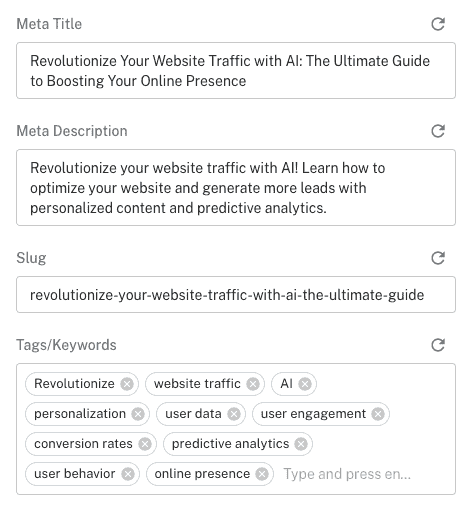The Importance of Privacy Policies: What You Need to Know
What is a Privacy Policy?
Have you ever wondered why websites and apps often ask you to read and agree to their Privacy Policy? What exactly is a Privacy Policy, and why does it matter? In simple terms, a Privacy Policy is a legal document that outlines how a company or website collects, uses, discloses, and manages the personal information of its users. It's essential for any business that collects personal data from its customers, whether it's an email address, credit card information, or even just browsing habits.
So, why should you care about Privacy Policies? Let's dive into the benefits of having one and some tips on writing a great policy for your business.
The Benefits of Having a Privacy Policy
First and foremost, having a Privacy Policy is required by law in many countries. If your business operates in the European Union (EU), for example, the General Data Protection Regulation (GDPR) mandates that you have a clear and transparent Privacy Policy in place. Failure to comply with these regulations can result in hefty fines and damage to your business's reputation.
But there's more to it than just legal compliance. A well-written Privacy Policy can help build trust between you and your customers. By being transparent about how you collect and use their personal information, you show that you respect their privacy and take data protection seriously. This can lead to increased customer loyalty and confidence in your brand.
Additionally, having a Privacy Policy can protect your business from potential legal disputes. By clearly outlining your practices and procedures regarding user data, you can avoid misunderstandings that could lead to costly lawsuits.
Tips for Writing a Great Privacy Policy
Now that we've covered the importance of having a Privacy Policy let's discuss some tips on how to write one that's both effective and user-friendly:
-
Be clear and concise: Your Privacy Policy should be easy to read and understand. Avoid using legal jargon or complex language that might confuse your users. Instead, use simple terms and straightforward explanations.
-
Be transparent: Clearly outline what information you collect, how you collect it, and why you need it. This includes data collected from cookies, contact forms, and third-party services like analytics tools.
-
Explain how the data is used: Describe in detail how you use the personal information you collect. This may include things like improving your website, sending marketing emails, or sharing data with third parties for advertising purposes.
-
Outline user rights: Inform your users about their rights regarding their personal information. This may include the right to access, modify, or delete their data.
-
Include contact information: Provide a way for users to reach out if they have questions or concerns about your Privacy Policy or data handling practices.
-
Update regularly: Make sure to review and update your Privacy Policy as needed, especially when there are changes in your data collection practices or applicable laws.
Generate the Perfect Privacy Policy with Our Generator
Penning a comprehensive Privacy Policy can be quite an intimidating task, especially if you're not well-versed in legal necessities and industry standards. But fear not – we're here to help! With our Privacy Policy generator, you can construct a custom-made policy that aligns with all the requisite regulations and best practices every time.
Leveraging our generator can assist your business in adhering to privacy laws while also building trust and openness with your customers. However, remember, while our tool aims to help you cover most aspects, having a legal professional review your policy is always a wise move to ensure complete legal compliance.
So, why wait? Try it out today and feel the serenity that comes with establishing a first-rate Privacy Policy!
